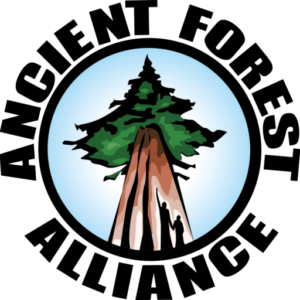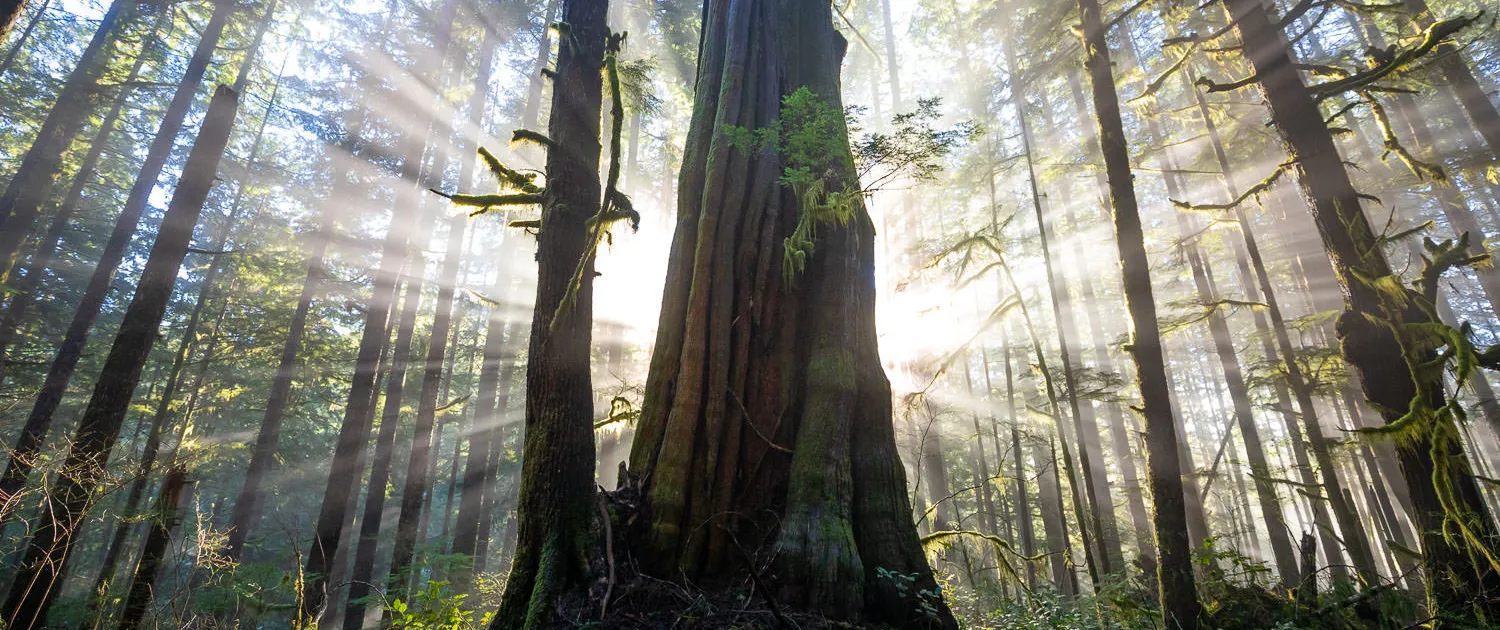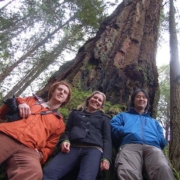Environmental organization launches VIRY REAL (Vancouver Island Rainforest therapy – Real Earth Appreciation Lessons) for distraught Avatar film-goers
Victoria, Canada – A Canadian environmental organization has established a 3 Step Program designed to cure thousands of movie-goers who complain about sinking into a depression in their drab, Earthly lives after watching scenes of spectacular alien rainforests and wildlife in James Cameron’s hugely popular film, “Avatar” (see article www.cnn.com/2010/SHOWBIZ/Movies/01/11/avatar.movie.blues/index.html ), which is now history’s highest grossing film at the box office.
“To treat the thousands of deprived souls who don’t get out into nature enough, and who therefore believe that the Earth’s ecosystems are boring and unspectacular unlike those of the alien world ‘Pandora’, we will be offering a simple, yet effective 3 step program to heal their souls of their Post-Avatar Depression,” states environmentalist Ken Wu, co-founder of the newly formed Ancient Forest Alliance (AFA). The AFA is a new non-profit organization dedicated to the protection of British Columbia’s old-growth temperate rainforests (see www.ancientforestalliance.org and the Facebook group and photos at www.facebook.com/group.php?gid=267708511607)
The program, known as VIRY REAL (Vancouver Island Rainforest therapy – Real Earth Appreciation Lessons) consists of 3 simple, yet effective steps to cure Post-Avatar Depression:
- Get out and experience nature.
This includes the old-growth forests of Vancouver Island, the tropical rainforests of Indonesia, the savannahs of Africa, the cypress swamps of Louisiana, the prairie grasslands of Alberta, the deciduous forests of eastern North America and Europe, or going to your own neighbourhood forest, field or wetland – that is, experiencing nature anywhere on this incredible planet, Earth. - Take action to defend nature.
This entails putting pressure on governments through letters, petitions, and protests to implement environmental laws and policies, pressuring corporations to change their practices, and simplifying one’s consumptive wants. - Get others to do the same.
Join environmental groups, donate, and recruit friends, family, classmates, and co-workers to hike, write, petition, and protest just like you!
“We guarantee that once you’ve successfully completed our simple, yet effective 3 step program, you will be cured of your Post-Avatar Depression,” states Wu. “We will guide you through each step of the way: from joining hikes in the endangered ancient forests of Vancouver Island, to writing and protesting to protect these forests, to undertaking outreach to get thousands of people to do the same.”
The Ancient Forest Alliance was launched in January of 2010 to organize grassroots support to protect the remaining old-growth forests in British Columbia, where trees can grow trunks over 20 feet (6 meters) wide, reach heights over 300 feet (95 meters) tall, and live to be almost 2000 years old (see spectacular photos on the Facebook page of the Ancient Forest Alliance).
75% of the productive old-growth forests on Vancouver Island have already been logged, including 90% of the valley bottoms where the largest trees grow. Unfortunately, only 6% of Vancouver Island’s productive forests are protected in parks. Meanwhile logging companies are clearcutting the unprotected old-growth forests at breakneck speeds for pulp, toilet paper, phone books, newsprint, and lumber, while the British Columbian government contends that there is no need to protect the remaining old-growth forests on Vancouver Island. The Ancient Forest Alliance advocates the protection of our endangered old-growth forests, sustainable logging of second-growth forests, and a ban on the export of raw, unprocessed logs to foreign mills in order to protect Canadian jobs.
“James Cameron’s ‘Avatar’ is a landmark film that is helping to propel forward the values of environmental and cultural appreciation across much of the world, including the need to protect nature and old-growth forests – that is, as long as the viewers make the connection to things that are actually here on Earth!” states Wu.
“Vancouver Island’s old-growth forests are the Real Pandora, here on Earth. We have giant, moss and fern-draped ancient trees almost as large as Home Tree in Avatar, spectacular creatures like bears, wolves, mountain lions, wolverine, and elk in our forests, and giant blue whales, killer whales, elephant seals, and huge Stellar sea lions along our Wild Coast,” notes Wu. “And when you look across this planet –with its enormous baobab, banyen, and sequoia trees, its elephants, rhinos, hyenas, oranguatans, Siberian tigers, wood bison, Kodiak bears, tapirs, whale sharks, manatees, leopard seals, walruses, California condors, and giant, shaggy Bactrian camels, and our incredible cultural diversity, you realize that we inhabit a place as spectacular – and a lot more real – than Pandora. But just like on Pandora, we have a real fight to defend it as the forces of greed, disconnect, and short-sightedness move at breakneck speeds to destroy the beauty and diversity on Earth.”



